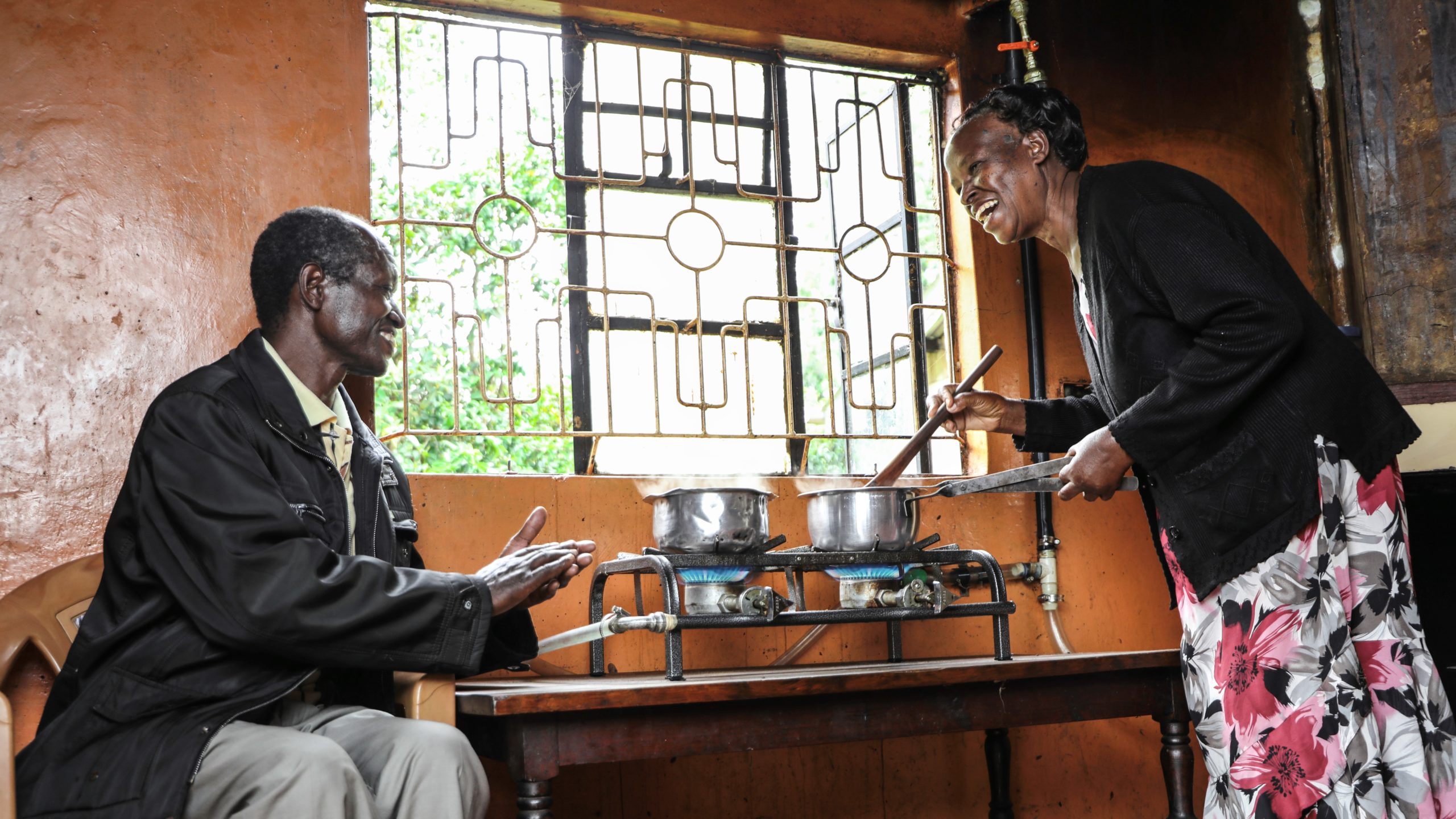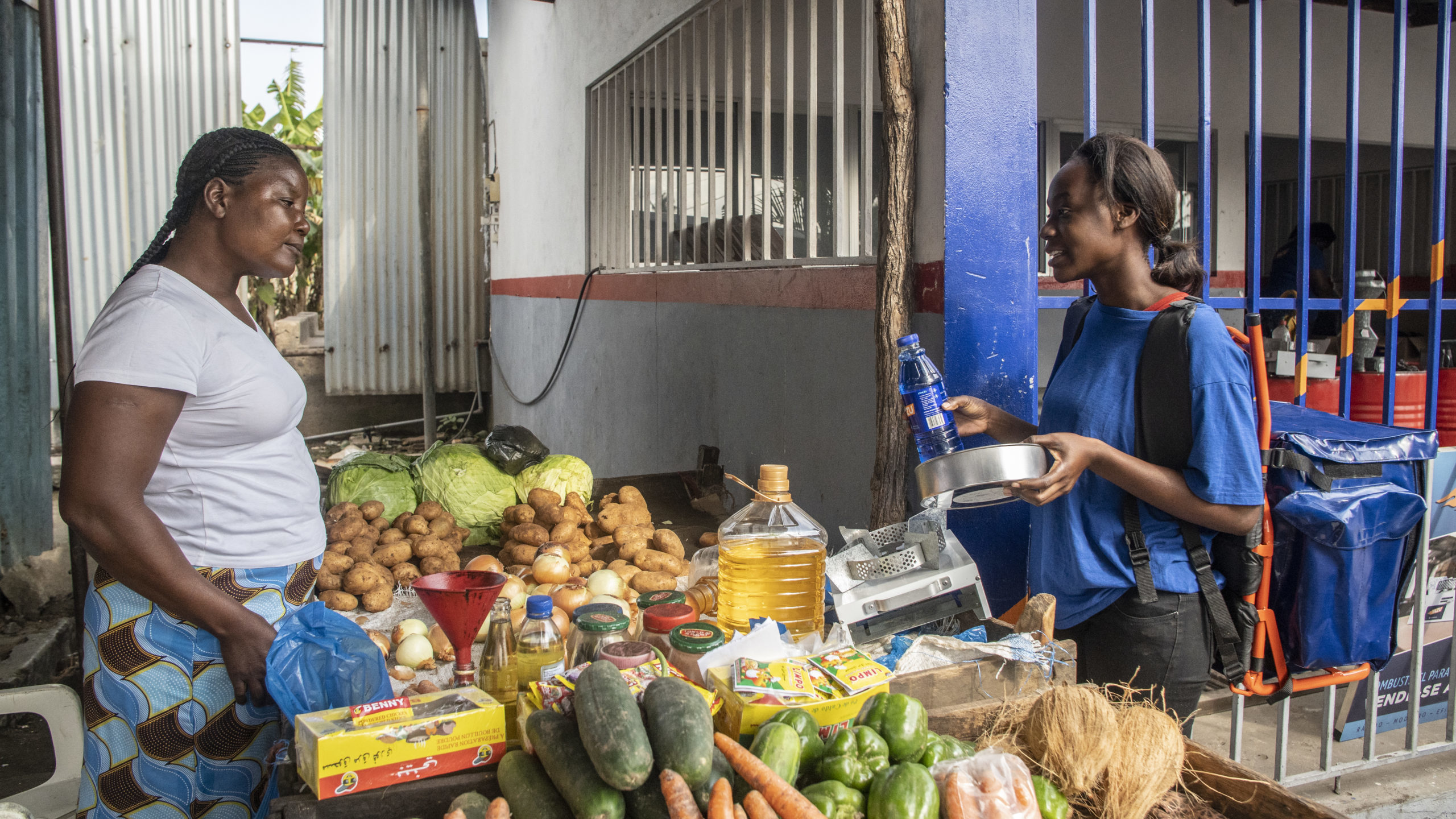Clean cooking named as a critical “Breakthrough” to halve emissions by 2030
By Climate Champions | December 2, 2022
At COP27, the UN Climate Change High Level Champions, together with the Clean Cooking Alliance (CCA), recognized clean cooking as one of the critical 2030 Breakthroughs and set a shared target for governments, donors, and private sector actors to urgently expand access to clean cooking for 2.4 billion people through at least $10 billion in innovative finance each year.
In the race to a healthier, more resilient, zero carbon world by 2050, every sector must undergo an exponential transformation. To help catalyze action in this Race to Zero, the “2030 Breakthroughs” pinpoint specific tipping points across major sectors of the global economy and articulate what key actors must do, and by when, to deliver the necessary systems change. Placing these Breakthrough targets at the forefront of the climate agenda catalyzes global ambition and action towards adaptation needed to reach a resilient world by 2030, with clean cooking as a key part of this roadmap.

Why clean cooking?
Clean cooking is one of the most immediate and cost-effective solutions available to address the triple-planetary crisis of climate change, nature-loss, and pollution but is critically underfunded; global ambition and partnerships are needed to scale up climate finance to accelerate clean energy cooking solutions to achieve climate and sustainable development goals.
Worldwide, 2.4 billion people lack access to clean cooking, which results in millions of premature deaths, large quantities of climate pollutants, unabated forest degradation in global biodiversity hot spots, and a continuous burden on women and children typically charged with collecting fuel wood.
Given this enormous impact, it is disgraceful that clean cooking solutions attract such a miniscule fraction of international climate finance and private capital. The current level of funding and investment in the clean cooking sector has not matched the global magnitude of the challenge, hovering in the tens of millions of dollars, and is highly concentrated in a small number of countries, technologies, and ventures. If the funding and financing trend continues along current trends, 2.1 billion people will still be without access in 2030 and it will take more than 1,000 years to achieve universal access to clean cooking.
However, we have the knowledge and technologies to provide affordable clean cooking to every person in the world—if governments, investors, and the private sector make it a priority.
The Clean Cooking Breakthrough is a critical mechanism that scales ambition and action globally and drives universal access to clean cooking through innovative finance.
The Clean Cooking Breakthrough
The goal of the Clean Cooking Breakthrough is to expand access to clean cooking for 2.4 billion people through at least $10 billion in innovative finance each year for clean cooking action worldwide. As intended through the 2030 Breakthrough agenda, the Clean Cooking Breakthrough creates a shared vision for all the different players in a system, helping to spur action.
This can only be achieved through through mobilizing responses at the national level and the support of a global network of partners across the clean cooking ecosystem, such as the Clean Cooking Alliance; multi-lateral development banks; regional structured finance vehicles such as the African Guarantee Fund; dedicated impact investment funds; high-integrity carbon finance actors; local implementing organizations and clean cooking enterprises. A whole systems approach including state and non-state actors is needed to drive universal access to clean cooking.
At least $10 billion per year is required to achieve universal access to clean cooking by 20302 yet the current level of funding lags far behind at about $130 million annually. While there needs to be a significant increase in all types of capital, the Clean Cooking Systems Strategy identified high-priority funding and financing opportunities to rapidly unlock a first wave of capital that is appropriate and necessary for today’s clean cooking landscape.
In response, CCA has initiated the Catalytic Finance Accelerator (CAF), with the mission to catalyze significant growth in funding and investment in the sector within three years. It will do so by addressing challenges that lie in the way of high-growth catalytic capital (most notably results-based finance and carbon finance); by leveraging these pools of funding to catalyze larger pools of traditional capital (e.g., guarantees, debt, equity, early-stage equity); and by laying the groundwork to unlock future pools of capital (e.g., social value finance at scale) through:
- Instilling smarter policies, standards, and principles that govern the conduct of actors in clean cooking markets and their adjacent sectors, bridging information gaps, and providing certainty and confidence to investors, outcome buyers, and funders.
- Building improved market information, tools, and infrastructure to improve decision-making, reduce transaction costs and increase productivity for investors, outcome buyers, and funders.
- Improving capacity of clean cooking solutions providers to meet the expectations of investors, outcome buyers, and funders for reliability, predictability, and scalability, and impact.
- Attracting and enabling new pools of capital from adjacent sector investors, traditional official development assistance providers, and philanthropic funders.
The Clean Cooking Breakthrough aims to mobilize increased commitment and financing, and build on recent activity and momentum around unlocking capital through innovative finance approaches. Exponential growth of carbon finance flowing into clean cooking markets is demonstrating how carbon finance can drive down the cost of cooking solutions for the customer and enable companies and markets to grow faster. The rapid mobilization of clean cooking funds such as the Spark+ Africa Fund and BIX, and the growing number of non-traditional finance actors, such as guarantee funds, tech, and wider digital economy investors, carbon brokers, and social-impact-bond developers, attending key clean cooking events reflect growing demand among investors.
CCA is already working together with partners to drive some of these innovations, including the incubation and spin-off of the Spark+ Africa Fund, the strategic partnerships with UNCDF to crowd in digital solutions and tech investments, strategic partnership with the African Guarantee Fund to unlock finance from local financial markets by leveraging carbon finance, and engaging the Global Alliance for Financial Inclusion and the Global Alliance for Banking on Values to create more enabling regulatory and policy environments to accelerate transition of traditional providers of capital to prioritize environmental investments. At the same time, in 2022, a number of public RBFs were launched or under way in Sub-Saharan Africa. All of these developments are creating faster pathways to clean cooking access but need to be scaled and replicated quickly.
The Clean Cooking Breakthrough reiterates the ambition of the Clean Cooking Energy Compact, endorsed by roughly 70 high-level stakeholders which aims to unlock the Sustainable Development Goals (SDGs) and net-zero by dramatically scaling commitment, coordination, and finance for clean cooking.

Nigel Topping, UN Climate Change High-Level Champion for the UK, COP26: “Clean cooking plays an important role in building climate resilience, through its benefits for multiple Sustainable Development Goals including nature, and through benefits to the local communities. Yet, clean cooking remains the most underfunded health and environmental challenge in the world. The Clean Cooking Breakthrough is a critical mechanism that scales ambition and action globally, and drives universal access to clean cooking through innovative finance.”
Dymphna van der Lans, CEO, Clean Cooking Alliance: “The clean cooking ecosystem continues to mature, and the sector is gaining momentum, but a transition of this scale will require significant increases in funding and resources to support technical and business model innovations that are responsive to the evolving needs of consumers. The Clean Cooking Breakthrough highlights the urgency of the challenge and serves as a call to action to accelerate progress on clean cooking if we are serious about achieving global climate and development goals.”
H.E. Samira Bawumia, Second Lady of Ghana: “The Clean Cooking Alliance has been instrumental in raising awareness of the relevance of access to clean energy, particularly clean cooking solutions and renewable energy technologies and solutions, and its impact on sustainable development, and the well-being of women and children. If we are committed to achieving net-zero carbon emissions, we must also commit to clean cooking issues.”
Hans Olav Ibrekk, Special Envoy, Climate and Security, Norwegian Ministry of Foreign Affairs, and Co-facilitator of SDG7 Technical Advisory Group: “Clean cooking is the problem, but it is also the opportunity because there’s a huge market out there; one out of three people in the world lack access to clean cooking. Turn this around and make an opportunity rather than a problem.”



